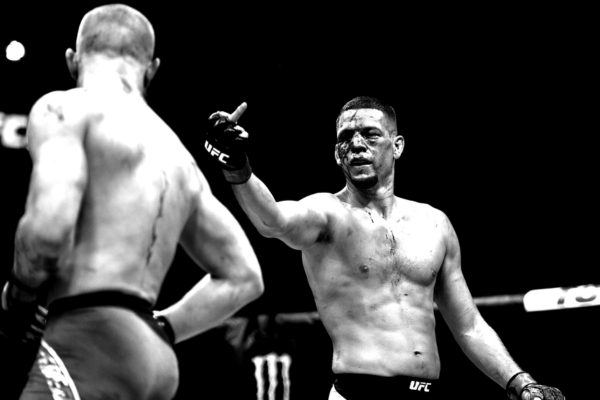What goes on in the mind of a fighter?

A fighter’s mental strength is what truly sets them apart. It goes beyond muscle and technique; it’s about focus, resilience, and perseverance. A fighter learns to be mentally strong by challenging themselves over and over again, both physically and mentally. During training and competitions, they must deal with pain, fear, and uncertainty, while still remaining focused on their goals.
What makes this strength unique is the ability to perform under pressure. Whether it’s an intense match or a tough training schedule, fighters develop a mental attitude that helps them push through. It’s this combination of determination and mental flexibility that allows them to excel time and time again. This ability to overcome obstacles is an inspiration to many, both inside and outside of the martial arts world.
The importance of discipline and perseverance
Discipline is the cornerstone of every fighter. It means consistency in training, even on days when motivation is lacking. Through discipline, fighters build routines that help them achieve long-term success. Every workout, even when it is physically and mentally challenging, contributes to their growth.
Perseverance goes hand in hand with discipline. It enables fighters to persevere when faced with failure or setbacks. Think of a knockout in the ring or an injury that requires recovery. For a fighter, giving up is not an option; instead, they learn to grow from every obstacle. This makes them not only stronger in the ring, but also in life.
How does a fighter prepare mentally?

A fighter’s preparation doesn’t start in the ring, it starts in the mind. Mental training plays a crucial role in building focus and confidence. Many fighters use visualization techniques , where they repeatedly visualize perfect moves or a victory in their minds. This helps build confidence and reduce anxiety.
In addition, meditation and mindfulness are increasingly used in the martial arts world. These techniques help fighters stay in the moment and manage stress. Breathing exercises are also popular, as they control the heart rate and promote a calm mind, even during intense moments. Together, these methods form a powerful foundation for mental acuity and balance.
The role of coaches and mentors in mental preparation
A coach is more than a technical supervisor; he or she is often also a mentor who has a great influence on the mental preparation of a fighter. Coaches help fighters to overcome mental barriers, such as fear of failure or self-doubt. They not only provide guidance, but also the necessary motivation in difficult moments. This feeling is reinforced by the visibility of the sport: every mistake or defeat is public.
Mentors often share personal experiences and offer fighters new perspectives. By instilling confidence and creating a safe environment, they enable the fighter to grow mentally. It is this combination of technical expertise and mental support that allows a fighter to perform at their best, no matter the challenges that come their way.
The challenges and fears of a fighter
For many fighters, the mental pressure of competition is just as great as the physical demands. The fear of failure can be paralyzing, especially when expectations are high, whether from a coach, a team or the public. This feeling is heightened by the visibility of the sport: every mistake or defeat is public.
To cope, fighters use strategies such as cognitive restructuring, where they turn negative thoughts into positive affirmations. Developing a “ competition mindset ” helps them focus on their strengths rather than potential risks. Furthermore, focusing on small, manageable goals during the match provides stability and reduces pressure.
How loss is mentally processed
Losses are inevitable in a fighter’s career, but how they deal with them determines their growth. Many fighters don’t see defeat as an end, but as an opportunity to learn. Reflection plays a crucial role in this: they analyze what went wrong, both technically and mentally, and use these insights to come back stronger.
In addition, a support network plays an important role. Coaches, teammates and family help fighters to maintain perspective and put defeat into perspective. For some, processing loss is a motivation to train harder and be better prepared for future challenges. This process of learning and recovery strengthens their mental resilience and determination.
Valuable lessons that go beyond the ring

The mental strength that fighters develop extends far beyond the ring. Discipline, determination and focus are qualities that fighters apply to everyday life. Whether it is work, relationships or personal goals, they have learned to see obstacles as opportunities for growth.
A key lesson is accepting failure as part of the process. This mindset not only helps in sports, but also when facing challenges in other aspects of life. Fighters understand that mental strength is not just about success, but also about how you pick yourself up after a setback.Inspiring stories of famous fighters
From legendary champions to rising stars, the stories of fighters inspire people around the world. Think of fighters like Muhammad Ali, who was known not only for his achievements in the ring, but also for his mental strength and determination to create social change. Or Ronda Rousey , who after a setback in the MMA world, has thrived and continued to evolve.
These stories remind us that martial arts is not just about strength and technique, but also about mental toughness. They motivate us to take on challenges and keep growing, no matter the obstacles.
Want to read more inspiring stories? Visit our blog and discover how fighters around the world show mental strength and inspire others!
 Nederlands
Nederlands English
English Deutsch
Deutsch Français
Français


welke manieren helpen vechters het meest om mentaal sterk te blijven tijdens trainingen en wedstrijden
Leave a comment